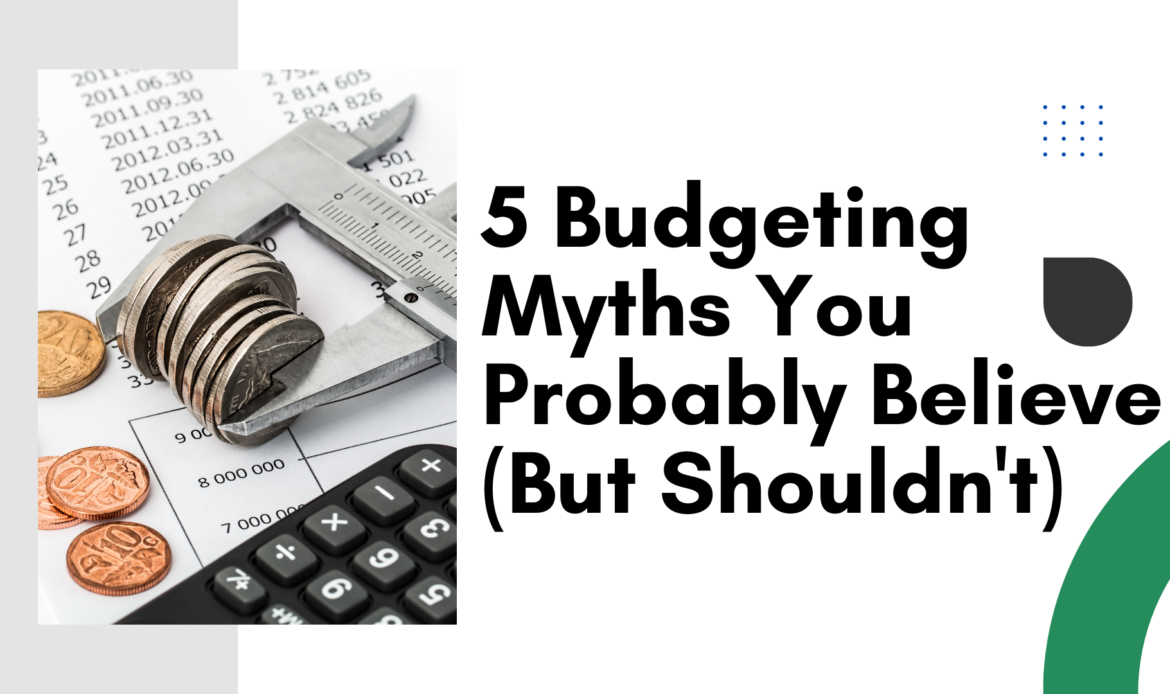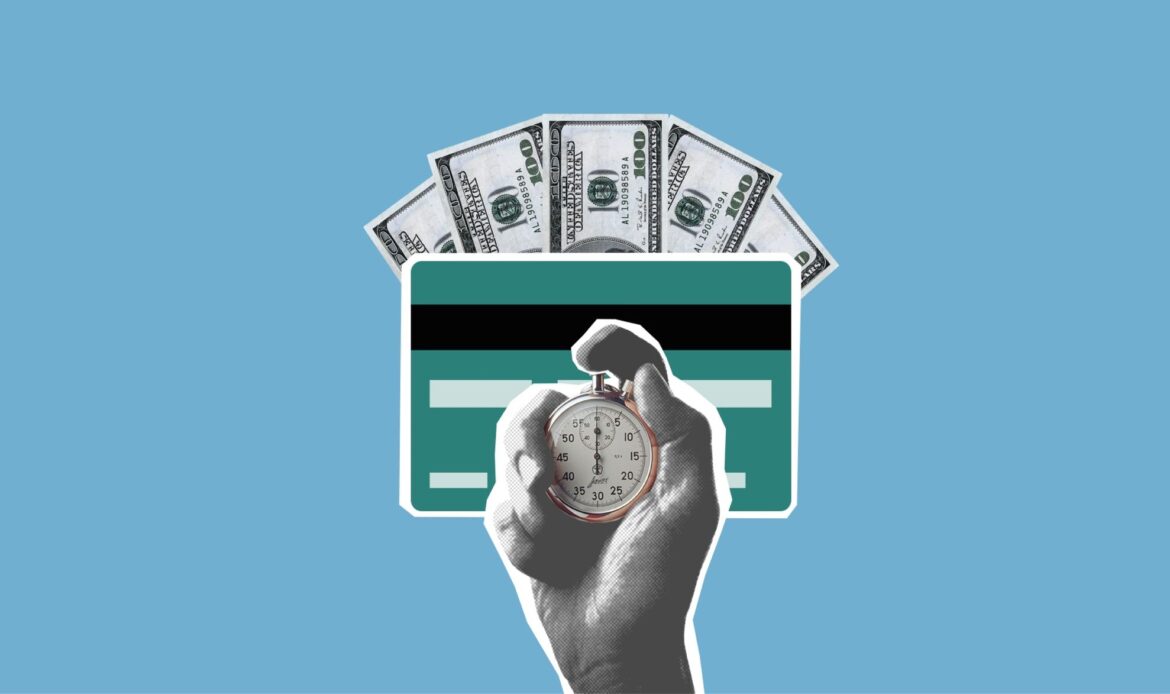
When it comes to personal finance, there’s no shortage of myths, misconceptions, and downright tall tales. It’s like the urban legends of the financial world: “Don’t swim after eating,” or “Your tongue will stick to a frozen pole.” We’ve all heard these nuggets of wisdom, but most of us are savvy enough to know that they’re more fiction than fact. Yet, when it comes to budgeting, many of us still fall for some classic myths that can lead us astray.
Budgeting, in particular, seems surrounded by a cloud of misunderstanding. It’s as if the mere mention of the word conjures up images of spreadsheets, deprivation, and endless calculations. But what if we told you that these ideas are as outdated as a fax machine in 2024?
Let’s set the record straight and bust some of these budgeting myths wide open. Not only will you see budgeting in a new light, but you might even find it, we dare say, enjoyable. So, without further ado, here are five budgeting myths you probably believe (but really shouldn’t).
1. Myth 1: Budgeting Is Only for People Who Are Struggling Financially

Reality: If budgeting were a club, it would have an “everyone is welcome” policy. Contrary to popular belief, budgeting isn’t just for those living paycheck to paycheck or trying to dig themselves out of debt. In fact, budgeting is a powerful tool for anyone who wants to manage their money better, regardless of their financial situation.
Whether you’re earning a modest income or the big bucks, a budget helps you track your spending, set financial goals, and make informed decisions. Think of it as your financial GPS, guiding you toward your desired destination, whether that’s financial freedom, early retirement, or just a more comfortable lifestyle.
Why It Matters
Budgeting gives you control over your money. It lets you see exactly where your income is going and ensures you’re putting your hard-earned cash towards the things that truly matter to you. Without a budget, even those with high incomes can wonder where all their money went at the end of the month.
Actionable Tip: Start by creating a simple budget that tracks your income and expenses. Identify areas where you might be overspending and reallocate those funds to your financial goals. Whether you’re saving for a down payment, investing in the stock market, or just building an emergency fund, budgeting is your roadmap to financial success.
Read: Tips and Tricks for Traveling on a Budget
2. Myth 2: Budgeting Means Depriving Yourself of Things You Enjoy

Reality: Ah, the age-old myth that budgeting is synonymous with deprivation. The truth? A well-crafted budget is all about balance, not cutting out everything you love. Sure, being mindful of your spending is essential, but that doesn’t mean you must give up your favorite latte, Friday night takeout, or the occasional splurge on something nice.
The secret is to prioritize your spending based on your values and goals. What brings you joy? What’s important to you? By aligning your budget with your personal priorities, you can enjoy the things you love without guilt. Instead of considering a budget as a restrictive diet, consider it a financial wellness plan that allows room for the occasional treat.
Why It Matters
Deprivation often leads to burnout and overspending. When you allow yourself to spend money on things that genuinely bring you happiness, you’re more likely to stick to your budget long-term. Plus, knowing you have room for fun spending within your budget makes it easier to say no to unnecessary purchases.
Actionable Tip: When setting up your budget, include a category for discretionary spending. This could be anything from dining out to hobbies to small luxuries. The key is to keep it reasonable and within your overall financial plan. Remember, budgeting isn’t about eliminating joy—it’s about spending mindfully.
3. Myth 3: You Need to Be a Math Whiz to Create a Budget

Reality: If the thought of budgeting brings back nightmares of high school algebra, fear not. Budgeting doesn’t require advanced math skills. In fact, basic addition and subtraction are usually all you need to create and maintain a budget. And for those who prefer to avoid math altogether, we live in the age of technology—countless budgeting apps and tools can do the heavy lifting for you.
These tools can categorize your spending, track your progress, and even alert you when you’re getting close to your budget limits. With the right app, you can create a budget in minutes; no calculator is required. The hardest part? Sticking to it!
Why It Matters
Many people avoid budgeting because they think it’s too complicated or time-consuming. But in reality, modern budgeting tools have made it easier than ever. You can budget if you can handle basic arithmetic or know how to use a smartphone.
Actionable Tip: Choose a budgeting tool or app that suits your style. Whether you prefer a simple spreadsheet or a more advanced app like YNAB (You Need a Budget) or Mint, find a system that works for you. Set it up, and let the app do the math while you focus on managing your money.
Read: A Simple Guide to Personal Budgeting
4. Myth 4: Budgeting Is Too Time-Consuming

Reality: Let’s be honest—anything worth doing requires some effort, and budgeting is no exception. However, the idea that budgeting will consume all your free time is not true. Setting up a budget requires some initial time and effort, but once you’ve got a system in place, maintaining it can take just a few minutes each week.
Think of it like setting up a new phone. The initial setup might take a while, but using the phone is quick and easy once it’s done. The same goes for budgeting. Once you’ve established your categories, set your spending limits, and linked your accounts, you need to update your budget regularly—something you can easily do over your morning coffee.
Why It Matters
Time is money; if budgeting took hours every week, no one would stick with it. But the truth is, a well-maintained budget saves you time in the long run by preventing financial surprises and helping you stay on track with your goals.
Actionable Tip: Schedule a weekly “money date” with yourself—just 10-15 minutes to review your budget, update your spending, and make any necessary adjustments. This small investment of time can pay huge dividends in your financial peace of mind.
5. Myth 5: Budgets Are Set in Stone and Can’t Be Changed

Reality: If you think budgets are rigid, unchangeable documents that demand perfection, think again. Budgets should be flexible and adaptable, not set in stone. Life is full of unexpected twists and turns—whether it’s an unplanned expense, a change in income, or a new financial goal, your budget should evolve with you.
The key is to review your budget and make adjustments as needed regularly. Maybe you got a raise at work or decided to save for a big vacation. Whatever the change, your budget should reflect your current financial situation and goals.
Why It Matters
A rigid budget can lead to frustration and failure. However, a flexible budget that adapts to your changing circumstances is a tool for long-term financial success. By adjusting your budget regularly, you control your finances and ensure that your money is always working for you.
Actionable Tip: Set a reminder to review your budget at least once a month. Look at your income, expenses, and any changes in your financial goals. Make the necessary adjustments to ensure your budget remains a living, breathing document that supports your financial journey.
Budgeting doesn’t have to be a dreaded task. You can approach budgeting with a fresh perspective and a positive attitude by dispelling these five common myths. Remember, budgeting isn’t just for those in financial distress—it’s a powerful tool for anyone who wants to take control of their finances and build a secure future.
Whether you’re a budgeting newbie or a seasoned pro, the key is to create a budget that works for you, one that reflects your values, goals, and lifestyle. So go ahead, bust those myths, and start budgeting your way to financial success!
Ready to take control of your financial future? Start by creating a budget that works for you. For more tips, tools, and inspiration on mastering your money, follow us or visit our website. Let’s bust those budgeting myths together!
